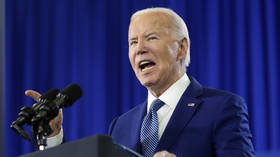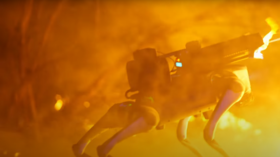Interview with Viktor Linnik
Viktor Linnik is a Political analyst and Editor in Chief of the Slovo weekly newspaper. He spoke to Russia Today about President Putin's visit to the U.S.
Russia Today: This is an informal meeting between the two leaders. Critics say the bar has been set very low, there is little expectation of a breakthrough. What is the best we can expect? Is it simply a exercise in thawing relations?
Viktor Linnik: Although it is an informal meeting, I think it is a very important one, and especially for the American President. Number one: given the background to this encounter – I think we should remember that Russia has planned it diplomatically just brilliantly. We have just had Venezuelan President Hugo Chavez in Moscow for talks on improving relations, and perhaps to buy weapons as well. And we also understand that Venezuela is one of those “rogue nations” and so having a visit to the U.S. , on the heels of Chavez’ visit to Moscow, I think is a reflection of the new status of Russia in world affairs.
RT: Well, of course the U.S. has very difficult relations with Chavez. But if we can take a wider approach, we’ve got Russian officials saying there is much more in common between the countries than the issues which divide them. Is that a reasonable description?
V.L.: I think by and large yes, this is a description that certainly fits the situation, but we should understand that a lot lies behind this diplomatic phrasing. What I think is important here, even critical, for President Bush, is that we know he has a very low rating in public opinion polls, pathetically low, if you will. So, when Putin comes for a visit that gives George Bush a brilliant opportunity to say: Look, despite the nightmare in Iraq, despite the mess in Afghanistan, we still have business as usual with Russia. So in that sense I think he is kind of helping his party’s chances in next year’s Congressional and presidential elections. So I think this is a visit with far-reaching consequences.
RT: Regarding the U.S.'s contrversial plans for missile bases in Eastern Europe, and President Putin's offer of the joint use of the Gabala radar station base in Azerbaijan. Realistically, are we going to see any compromise?
V.L.: I do not think directly from this encounter, not directly from this meeting. But certainly I think there will be a better understanding of this issue, there will be better wording of both government's positions. And I think the Americans will find it very hard to decline this offer because this is a very good proposal, it is almost an offer you can't refuse.
RT: America has said that it will look at Gabala as an additional base but not as a replacement for the ones in Eastern Europe, so how far could it go?
V.L.: Again it is better than what they said yesterday, it sounds better than what they suggested. So we will see what comes out of this particular meeting.












